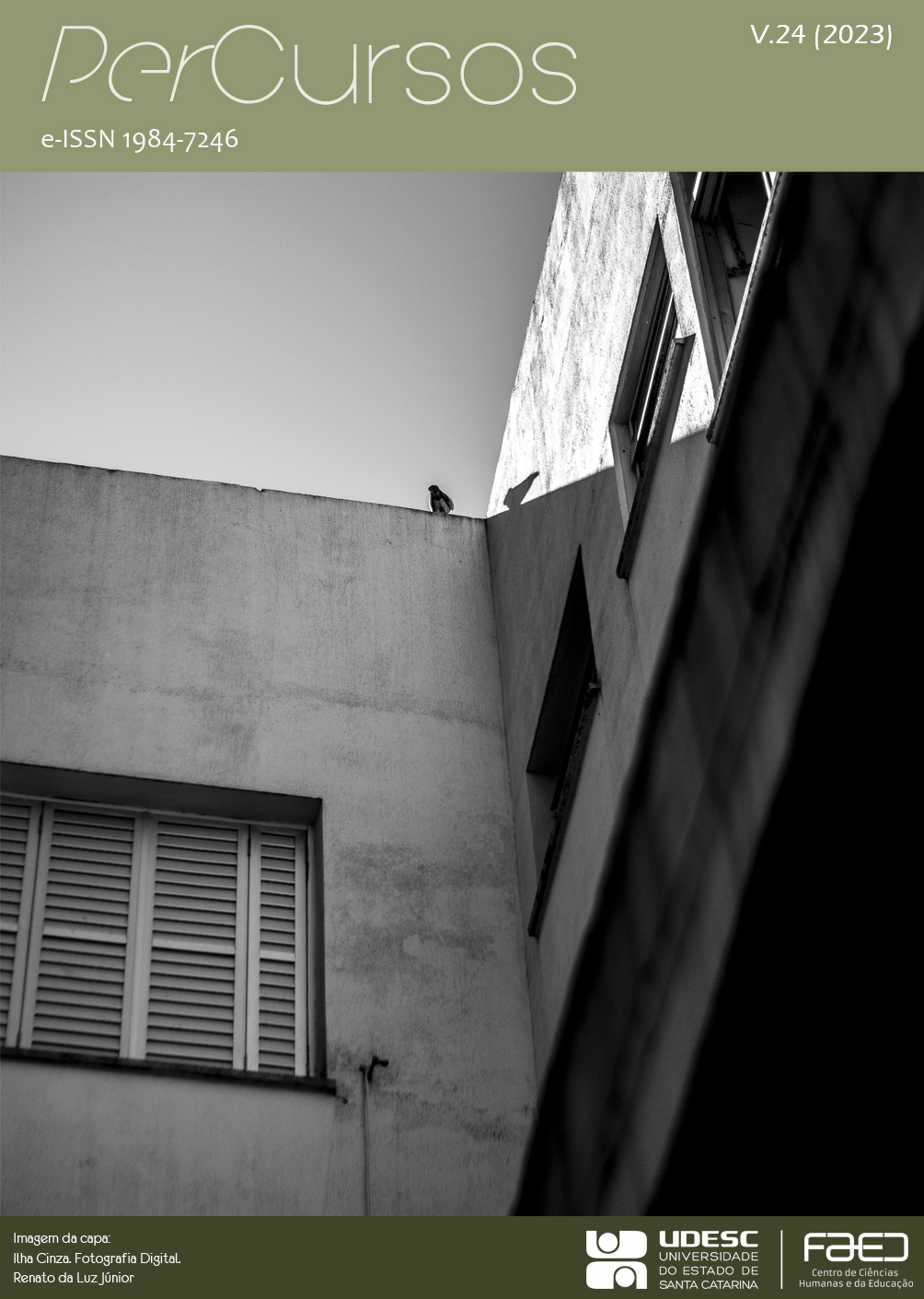A non-conquering writing of history: dialogues between Certeau and post-colonial thought
DOI:
https://doi.org/10.5965/19847246242023e0504Keywords:
story writing, historiographic discourse, post-colonialAbstract
When we understand that history can be written and constructed from hegemonic narratives, the need arises to think about the other voices that were possibly silenced in the writing process. The linearity and romanticism that is sometimes present in history start to be questioned, as is the case of the colonization process, which reflects in silencing and exclusions until nowaday. The “Making history” is not a neutral operation, and can segregate people or social groups, in addition to representing a form of appropriation of the other, which is named, classified and hierarchized through historical discourse. Michel de Certeau is an author who criticizes attempts to constitute the other, realized mainly by the historiographical discourse. In the same way, post-colonial thinking brings up the reflection reflection about the need for a decentered rewriting of the great imperial narratives of the past and of the deconstruction of that taken as universal, linear, different, of the reclassification of alterity. Based on this context, this essay seeks to evidence approximations of the Michel de Certeau, mainly about the work "The writing of history", with the postcolonial approach.
Downloads
References
BHABHA, Homi K. O local da cultura. Belo Horizonte: Editora da UFMG, 1998.
BUARQUE, Virgínia Albuquerque de Castro. A epistemologia “negativa” de Michel de Certeau. Trajetos Revista de História UFC, Fortaleza, v. 5, n. 9/10, p. 231-247, 2007.
CERTEAU, Michel. A escrita da história. Rio de Janeiro: Forense Universitária, 1982.
CERTEAU, Michel de. A invenção do cotidiano 1: artes de fazer. 3. ed. Petrópolis: Vozes, 1998.
CERTEAU, Michel. A cultura no plural. Campinas: Papirus Editora. 2010.
CERTEAU, Michel de; GIARD, Luce; MAYOL, Pierre A invenção do cotidiano 2: morar, cozinhar. 10. ed. Petrópolis: Vozes, 2011.
DUSSEL, Enrique. 1492: o encobrimento do outro: a origem do mito da modernidade. Petrópolis: Vozes, 1993.
FANON, Frantz. Pele negra, máscaras brancas Salvador: EDUFBA, 2008. (Trabalho original publicado em 1952).
FREYRE, Gilberto. Casa-grande & senzala. São Paulo: Global Editora e Distribuidora Ltda, 2003.
HALL, Stuart. Da diáspora: identidades e mediações culturais. Belo Horizonte: UFMG, 2003.
HALL, Stuart. Cultura e representação. Rio de Janeiro: PUC, 2000
MATA, Inocência. Estudos pós-coloniais: desconstruindo genealogias eurocêntricas. Civitas-Revista de Ciências Sociais, Porto Alegre, v. 14, p. 27-42, 2014.
MIRANDA JÚNIOR, Robson Freitas de. A história como “logos do outro”: Michel de Certeau e a operação historiográfica. Temporalidades – Revista de História, Belo Horizonte, v. 11, n. 2, p. 98-122, 2019
MOORE, Carlos W. Racismo & sociedade: novas bases epistemológicas para entender o racismo. Belo Horizonte: Mazza, 2007.
MUNANGA, Kabengele. Rediscutindo a mestiçagem no Brasil: identidade nacional versus identidade negra. Rio de Janeiro: Vozes, 1999.
QUIJANO, Anibal. Colonialidade do poder, eurocentrismo e América Latina. In: LANDER, Edgardo (org.). A colonialidade do saber: eurocentrismo e ciências sociais: perspectivas latino-americanas. Buenos Aires: Clacso, 2005. p. 107-130.
SAID, Edward W. Orientalismo: o Oriente como invenção do Ocidente. São Paulo: Editora Companhia das Letras, 2007.
SANTOS, Gislene Aparecida dos. A. A invenção do ser negro: um percurso das ideias que naturalizaram a inferioridade dos negros. São Paulo: Educ/Fapesp; Rio de Janeiro: Pallas, 2002.
SPIVAK, Gayatri Chakravorty. Pode o subalterno falar. Belo Horizonte: Editora da UFMG, 2014.
Downloads
Published
How to Cite
Issue
Section
License
Copyright (c) 2023 PerCursos

This work is licensed under a Creative Commons Attribution-NonCommercial-NoDerivatives 4.0 International License.


